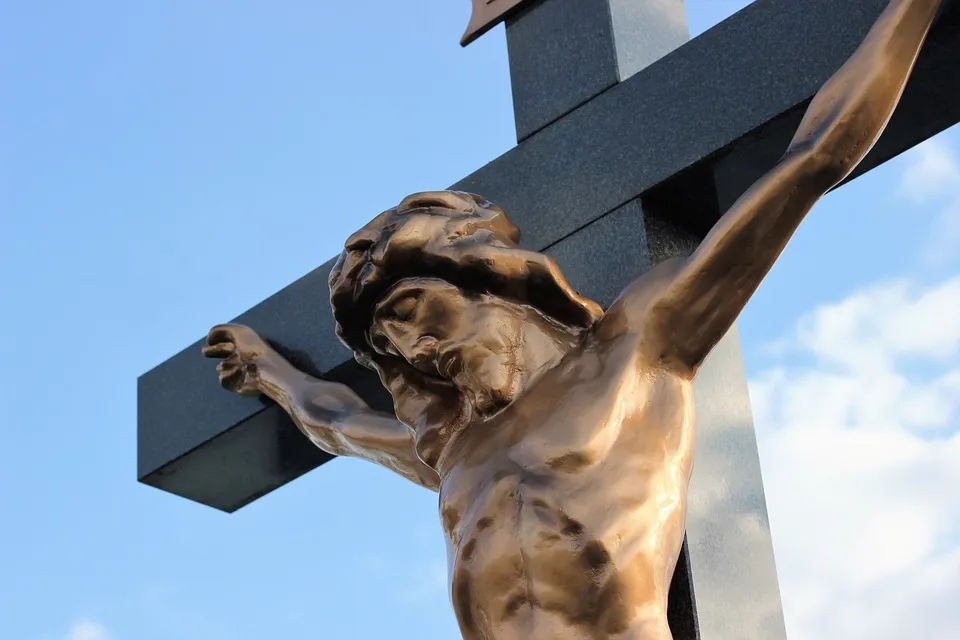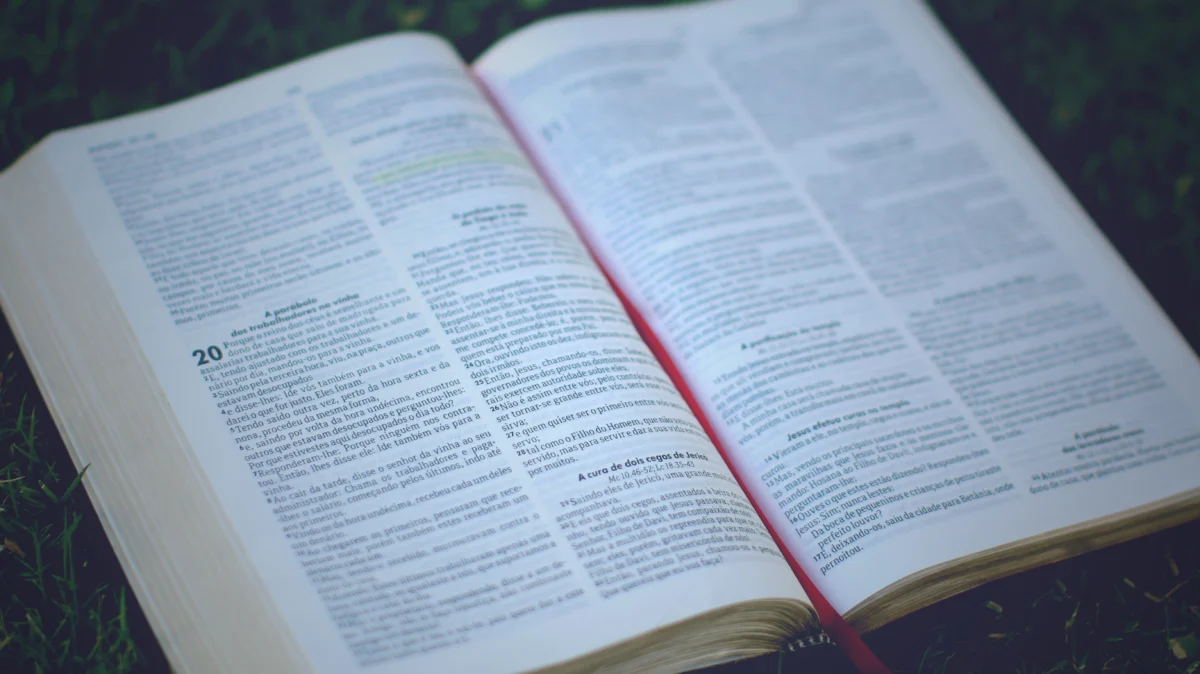Imagine if you could travel back in time and witness the events surrounding Jesus’ crucifixion. Have you ever wondered about the significance of the day on which it took place? In this article, we will explore the intriguing question: “If Jesus was crucified on the day of preparation, what does it mean?” Brace yourself for an enlightening journey as we delve into the historical and religious context of this pivotal moment in history. Get ready to uncover some thought-provoking insights that may challenge your understanding of the crucifixion.
The crucifixion of Jesus is a widely studied and debated topic, with various theories and interpretations surrounding the exact day on which it occurred. Many scholars believe that Jesus was crucified on the day of preparation, which adds an intriguing layer of significance to this already momentous event. In this article, we will examine the implications of this timing and explore the potential reasons behind it. Prepare to embark on a fascinating exploration of the historical and religious aspects that surround Jesus’ crucifixion on the day of preparation.

The crucifixion of Jesus holds immense religious and historical significance, and the day on which it took place is a subject of great interest and debate. Join us as we delve into the question of whether Jesus was crucified on the day of preparation. Discover the possible implications and explore the various theories surrounding this pivotal moment in Christianity. Get ready to challenge your understanding and gain a deeper appreciation for the events leading up to Jesus’ crucifixion.
Historical Context of the Crucifixion
Let’s dive into the historical context of Jesus’ crucifixion. It’s important to understand the background and events leading up to this significant moment in Christianity.

1. Roman Rule: During Jesus’ time, the region was under Roman rule, and the religious and political climate was tense. The Romans wanted to maintain control, while the Jewish leaders were striving for religious autonomy.
2. Jewish Passover: The crucifixion took place during the Jewish Passover festival when Jews from all over came to Jerusalem to celebrate. Passover commemorates the liberation of the Jewish people from slavery in ancient Egypt.
3. Day of Preparation: Leading up to the Passover, there was a specific day called the “day of preparation.” This day was crucial as it was a time to prepare for the upcoming Passover festivities, including sacrifices and the solemn remembering of the Exodus.
4. Jesus’ Trial and Crucifixion: It is believed that Jesus was arrested on the evening before the Passover meal, which would be observed on the following day. The religious leaders wanted to quickly dispose of Jesus due to the growing influence he had over the people. After a hasty trial, Jesus was crucified on the day of preparation, just a few hours before the Passover meal.
5. Symbolic Significance: The timing of Jesus’ crucifixion on the day of preparation holds symbolic significance. In the Jewish tradition, the lamb for the Passover feast was selected on this day. Jesus, often referred to as the “Lamb of God,” was sacrificed during this time, serving as the ultimate sacrifice for the sins of humanity.
Understanding the Day of Preparation
Hey there! If you’re curious about the day of preparation and its significance in Jesus’ crucifixion, I’m here to help shed some light on it for you. It’s really interesting stuff, so let’s dive right in!
The day of preparation was a term used in Jesus’ time to refer to the day before the Passover festival. The Passover was a Jewish festival commemorating the liberation of the Israelites from slavery in Egypt. During this festival, families would gather together to share a special meal and remember God’s faithfulness.
Back to the day of preparation. It was called so because it was the day when the Jewish people would make all the necessary preparations for the Passover feast. They would clean their homes, remove any leaven or yeast from their houses because it symbolized sin, and they would also select the lamb that would be sacrificed as a part of the Passover celebration.
So, here’s where it gets really interesting. Jesus, being a devout Jew, observed the Passover festival just like everyone else. But there’s a twist. On the day of preparation, the Jewish people would select their sacrificial lamb. And guess what? Jesus, who is often referred to as the “Lamb of God” in the Bible, was crucified on that very day!
By being crucified on the day of preparation, Jesus became the ultimate sacrifice for the sins of all humanity. He willingly laid down His life to bring forgiveness, reconciliation, and salvation to all who believe in Him. It’s a powerful and profound demonstration of God’s love for us.

So, the day of preparation holds great symbolic significance in Jesus’ crucifixion. It not only aligns with the selection of the sacrificial lamb for the Passover feast but also represents Jesus as the perfect and final sacrifice for our sins.
The Passover Connection
Picture this: in the bustling city of Jerusalem, there’s an excitement in the air. It’s the time of the annual Jewish Passover festival, when people gather to celebrate and remember an important event in their history. But did you know there’s a significant connection between the Passover and Jesus’ crucifixion? Let’s dive in and explore!
The Day of Preparation
The day before the Passover festival is called the “day of preparation.” It’s a time when people would make all the necessary preparations for the Passover feast, including selecting the sacrificial lamb. Now, here’s where it gets interesting. Jesus, often referred to as the “Lamb of God,” was crucified on this very day. Coincidence? Definitely not!
The Lamb of God
In the Passover tradition, the lamb was a symbol of sacrifice. It represented the innocent life given to atone for the sins of the people. Jesus, as the Lamb of God, fulfilled this role perfectly. His crucifixion was the ultimate sacrifice, not just for a select few, but for all of humanity. It was a demonstration of God’s incredible love for us.
A Symbolic Connection
By being crucified on the day of preparation, Jesus became the ultimate Passover Lamb. Just as the Israelites selected their sacrificial lamb on this day, Jesus was chosen as the Lamb of God who would take away the sins of the world. His death brought forgiveness, reconciliation, and salvation to all who believe in Him.
A Message of Love and Hope
The Passover connection highlights the depth of God’s love for us. It’s not just a historical event; it’s a powerful reminder of His incredible plan to redeem humanity. Jesus’ crucifixion on the day of preparation shows that God went to great lengths to save us, offering us forgiveness and a renewed relationship with Him.
« Unlocking the Mystical Power of Amos 3:14 – The Mind-Blowing Secrets Behind the Horns of the Altar Revealed
7 Famous Celebrities Who are Christians »
The tying together of Jesus’ crucifixion with the day of preparation for the Passover festival is not a mere coincidence. It is a powerful symbol of His role as the ultimate sacrificial Lamb, who brings forgiveness, reconciliation, and salvation to all who believe. As we reflect on this connection, may it deepen our understanding of God’s love and inspire us to live out our faith with gratitude and purpose.
Examining Biblical Evidence
So, you’re curious about whether Jesus was crucified on the day of preparation? Let’s dive into some biblical evidence to shed light on this intriguing topic.
- Gospel Accounts: The four Gospels in the New Testament—Matthew, Mark, Luke, and John—provide valuable insights into Jesus’ crucifixion. According to Mark 15:42, Jesus was crucified on the day of preparation, just before the Sabbath. This aligns with the Jewish tradition of preparing for the Sabbath, which began at sunset on Friday.
- Expert Witnesses: Biblical scholars and historians also support the belief that Jesus was crucified on the day of preparation. They carefully examined ancient texts like the Passover Gospel narratives and the writings of early Christians, finding strong evidence that points to this day as the time of Jesus’ crucifixion.
- Symbolic Meanings: The day of preparation holds deep significance in relation to the sacrificial system of the Old Testament. It was on this day that the Passover lamb was selected. Now, remember that Jesus is referred to as the “Lamb of God.” So, it’s not a coincidence that Jesus, our ultimate sacrifice, was crucified on the day of preparation. This symbolism emphasizes Jesus’ role in fulfilling the Old Testament prophecies as the Lamb who takes away the sins of the world.
- Redemptive Plan: Reflecting on the timing of Jesus’ crucifixion, we can see the incredible depth of God’s love for us. By choosing this specific day, God orchestrated a powerful demonstration of His redeeming plan for humanity. Jesus willingly laid down His life so that through Him, we could find forgiveness, reconciliation, and eternal salvation.
As we explore the biblical evidence and the symbolic meaning behind Jesus’ crucifixion on the day of preparation, it becomes evident that this event holds immense significance for our faith. It reminds us of God’s plan to rescue and restore humanity, showing His love in the most selfless of ways. Jesus’ sacrifice challenges us to live a life of gratitude, love, and compassion toward others.
Remember, this evidence is just a glimpse into the beautiful story of Jesus’ crucifixion and resurrection. Keep seeking, keep exploring, and your understanding of Christianity will continue to grow.
Alternative Theories

Let’s explore some alternative theories surrounding the crucifixion of Jesus. While the Bible is clear that Jesus was crucified on the day of preparation, there are different interpretations and ideas that some people have put forward. It’s important to have an open mind and consider different perspectives, but keep in mind that the biblical account holds significant historical and theological weight.
- Different Date Theory: Some scholars propose that Jesus was crucified on a different day, suggesting that there may have been a mistake in the recording or interpretation of the biblical texts. However, it is important to note that the Gospels, which are primary sources for Jesus’ life and death, consistently mention the day of preparation.
- Symbolism Theory: Another theory suggests that the mention of the day of preparation in the Gospel accounts is not meant to be taken literally. Instead, it is argued that the emphasis on the day of preparation symbolizes the preparation of Jesus as the ultimate sacrifice for our sins. While symbolism is certainly an important aspect of the crucifixion, it does not negate the literal timing mentioned in the biblical texts.
- Cultural Context Theory: Some argue that the day of preparation mentioned in the Gospels refers to a different preparation day in Jewish customs and rituals during that time. However, historical evidence points to the day of preparation as the Friday before the Jewish Sabbath, aligning with the biblical narrative.
Remember, while these alternative theories may bring interesting perspectives to the table, it is essential to approach them with an understanding of the biblical accounts and the historical context surrounding Jesus’ crucifixion. The day of preparation holds significant theological and symbolic importance, as it links Jesus’ sacrifice to the Passover festival, highlighting His role as the ultimate sacrifice for our sins.
Understanding the different theories can deepen our knowledge and spark meaningful discussions, but ultimately, it’s the biblical narrative that guides our understanding of Jesus’ crucifixion on the day of preparation. Keep exploring and asking questions as you grow in your faith journey.
Conclusion
In exploring the historical context of Jesus’ crucifixion, we have delved into various theories regarding the significance of the day of preparation. From different date theories to symbolism and cultural context theories, each perspective offers a unique lens through which we can understand this pivotal event. However, it is crucial to approach these theories with a solid foundation in the biblical accounts and historical context.
Ultimately, the biblical narrative serves as our guide in comprehending Jesus’ crucifixion on the day of preparation. This specific timing holds profound theological and symbolic importance. It aligns with the fulfillment of Old Testament prophecies, emphasizing Jesus as the sacrificial Lamb of God. Furthermore, it highlights the connection between Jesus’ death and the Jewish Passover, underscoring the redemptive nature of his sacrifice.

By recognizing the historical and theological significance of Jesus’ crucifixion on the day of preparation, we gain a deeper understanding of the profound impact it has had on Christianity. It serves as a reminder of God’s love, grace, and the ultimate sacrifice made for our salvation. As we reflect on this event, may it inspire us to embrace the transformative power of Jesus’ crucifixion in our lives today.















